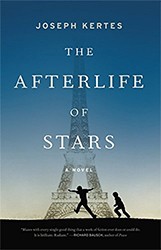March 1944: War’s darkest period descends upon Hungary’s Jews. By the time it ends in January 1945, over half a million Jews will have been murdered. Gratitude tells the story of that period, through the eyes of the wealthy Beck family, whose lives and loves are saved and lost. At the center of it all is Paul Beck, a young lawyer whose chance meeting with a visiting Swede, Raoul Wallenberg, may alter the inevitability of the Jews’ fate. Like The Garden of the Finzi-Continis, Gratitude captures forever the pain and passion of one’s family precious moment in time.

Gratitude
Discussion Questions
1. What do you think is represented by the stampede of wild horses that Lili witnesses? Do horses recur in the novel? Do other animals play a significant role in the novel? For example, how does Smetana the cat help Istvan to survive?
2. What is the role of music in this novel? How did the passages about music add to your reading experience? What is being implied by the music?
3. Commandant Karoly Fekete mercifully saves Lili from Sergeant Erdo. In the concentration camp, a cruel guard spares Marta’s life and helps her escape. Why do you think people capable of such cruelty are also depicted as capable of compassion?
4. Was it reasonable for Robert to ask Paul and his sister to go on work detail? Did he intend for Paul to depart? Why do you think Paul decided to leave at the end of the novel without telling his family where he was going? Where do you think he goes?
5. Why is the novel called Gratitude?

Help support the Jewish Book Council.

